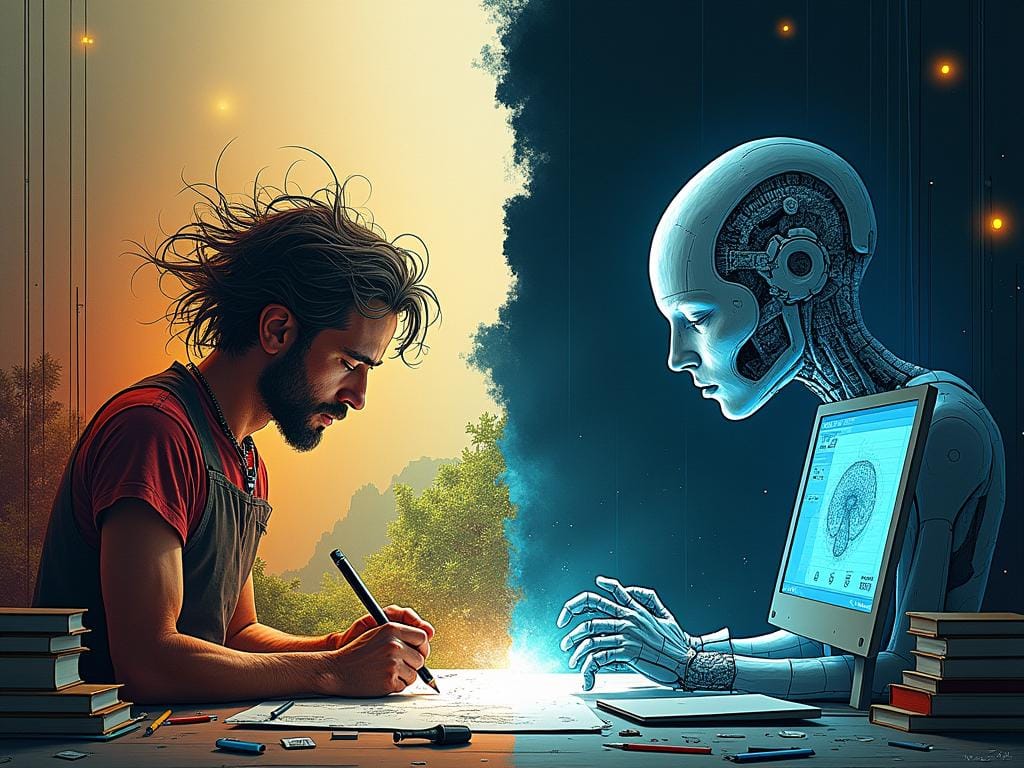The Illusion of Effort: How AI Is Stealing Our Capacity to Think
In a world where AI provides instant answers, we risk losing the vital struggle that fosters creativity and critical thinking. As we become passive consumers of ideas, our cognitive skills weaken. The real challenge lies in using AI as a tool, not a crutch, and embracing the journey of discovery ...

Remember the days when getting lost was part of the journey? When you'd argue with friends over trivia, or spend hours digging through books to find the answer? That friction, that struggle, was a feature, not a bug. It made us who we are. But now, the friction is gone.
Artificial Intelligence has made life smoother, easier, almost too easy. We have answers before we even know the questions. We're outsourcing our thinking, and in the process, we're losing something vital.
AI is a seductress, whispering promises of efficiency and convenience. And we’ve fallen for it, hook, line, and sinker. Want to know the capital of some obscure country? Just ask. Need the perfect headline? AI's got your back. Need a decision made? Just feed the machine some data, and voila! The answer appears.
But here’s the thing: in this frictionless world, our brains are atrophying. The muscles we used to flex when we were curious, when we were stuck, when we had to wrestle with a problem—they're weakening. We’re becoming passive consumers of pre-packaged thoughts, rather than active creators of ideas.
Consider the artists who no longer sketch, relying instead on digital tools to correct every flaw. Or the students who don't need to struggle through an equation, as the answer is just a click away. Or even the executives who bypass critical thinking for data-driven decisions. What happens when we hand over the reins of our cognitive processes to an algorithm?
We’re in danger of losing our edge, the sharpness that comes from engaging deeply with the world. It's not just about getting the right answer—it's about the journey to find it. It's about the creativity that emerges from constraints, the innovation that springs from necessity. AI, in all its brilliance, removes those constraints, but in doing so, it also removes the opportunity for us to grow.
The real risk isn’t that AI will take over the world. The real risk is that we’ll let it. We’ll stop thinking. We’ll stop questioning. We’ll stop doing the hard work of figuring things out for ourselves. And when that happens, we don’t just lose our intelligence—we lose our humanity.
The challenge isn’t to reject AI—it’s to resist the temptation to let it do all the heavy lifting. We need to find a balance, to use AI as a tool, not a crutch. We need to keep thinking, keep struggling, keep engaging with the world around us. Because that struggle is where growth happens. That friction is what keeps us sharp.
So the next time you’re tempted to let AI take over, pause. Take a breath. Think. Because the future belongs not to those who can get the answers fastest, but to those who know how to ask the right questions.
